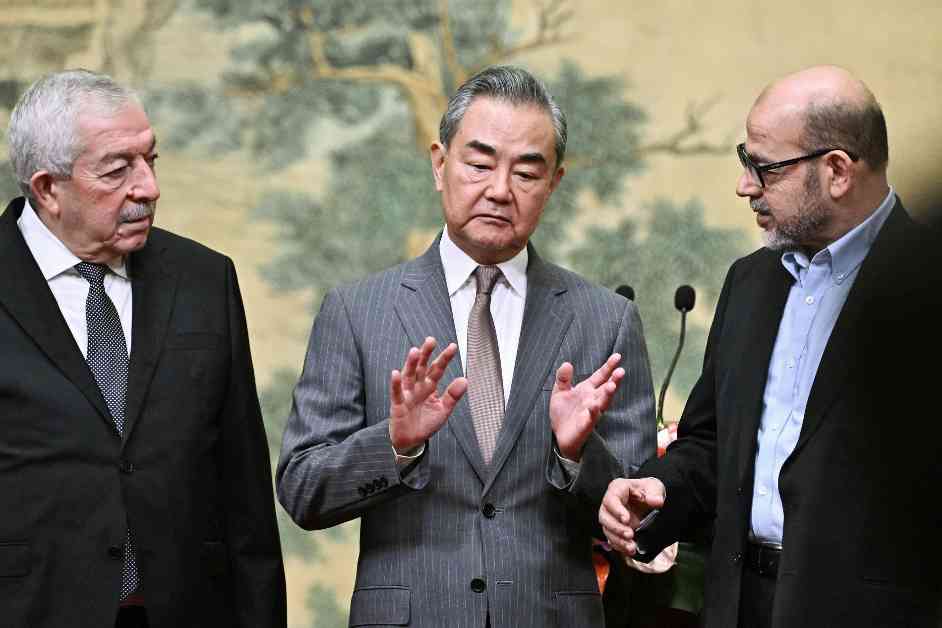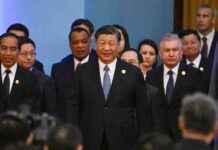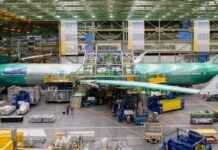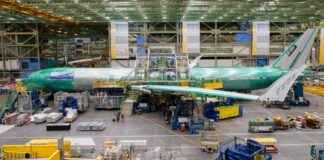China’s Growing Influence in the Middle East: A Closer Look at Recent Developments
In a significant display of diplomatic prowess, China recently played a key role in facilitating peace talks among various Palestinian factions, including long-time rivals Hamas and Fatah. The outcome of these negotiations was the signing of the “Beijing Declaration,” in which the factions agreed to put an end to their divisions and form an interim national unity government. This development marks a crucial step towards stability in the region and showcases China’s increasing involvement in Middle Eastern affairs.
The talks in Beijing, which commenced on July 21 and culminated in the signing of the declaration on July 23, were attended by prominent figures such as Mahmoud al-Aloul, Vice Chairman of the Central Committee of Fatah; Wang Yi, China’s Foreign Minister; and Mousa Abu Marzouk, a senior Hamas official. This gathering underscored China’s commitment to fostering peace and cooperation in the Middle East, as well as its willingness to engage with a wide range of stakeholders in the region.
China’s foray into Middle Eastern diplomacy can be traced back to March 2023 when it successfully brokered talks that led to the restoration of diplomatic relations between Saudi Arabia and Iran. This achievement was a watershed moment in China’s efforts to position itself as a mediator in the region and solidify its role as a key player in Middle Eastern geopolitics. The groundwork for China’s diplomatic initiatives in the Middle East was laid with the establishment of the China-Arab States Cooperation Forum (CASCF) in 2004, a platform for dialogue and collaboration between China and the Arab League.
The recent developments in Beijing, particularly the successful peace talks among Palestinian factions, reflect a strategic shift in China’s approach to the Middle East. While China has cultivated strong economic and political ties with Israel over the past two decades, including cooperation in counter-terrorism efforts, its stance on the Israel-Gaza conflict has been notably different from that of Western powers. In the aftermath of the October 7 attack, China refrained from condemning Israel and instead criticized the United States for its perceived role in perpetuating the conflict. Beijing characterized the war in Gaza as a “tragedy for humanity” and a “disgrace for human civilization,” highlighting its commitment to a peaceful resolution of the conflict.
China’s support for Iran also factors significantly into its strategies in the Middle East. The close relationship between Beijing and Tehran has been a point of contention for Western powers, particularly the United States, which has sought to isolate Iran diplomatically and economically. China’s continued support for Iran, despite international pressure, underscores its commitment to maintaining strategic partnerships in the region and asserting its influence on the global stage.
Looking ahead, it remains to be seen what China hopes to gain from its involvement in the intra-Palestinian peace talks and how its position on the Israel-Gaza conflict will evolve. The recent developments in Beijing signal a new chapter in China’s engagement with the Middle East and raise important questions about the future of the region’s geopolitical landscape. As China continues to expand its diplomatic and economic activities in the Middle East, it is poised to play an increasingly significant role in shaping the region’s future.

















